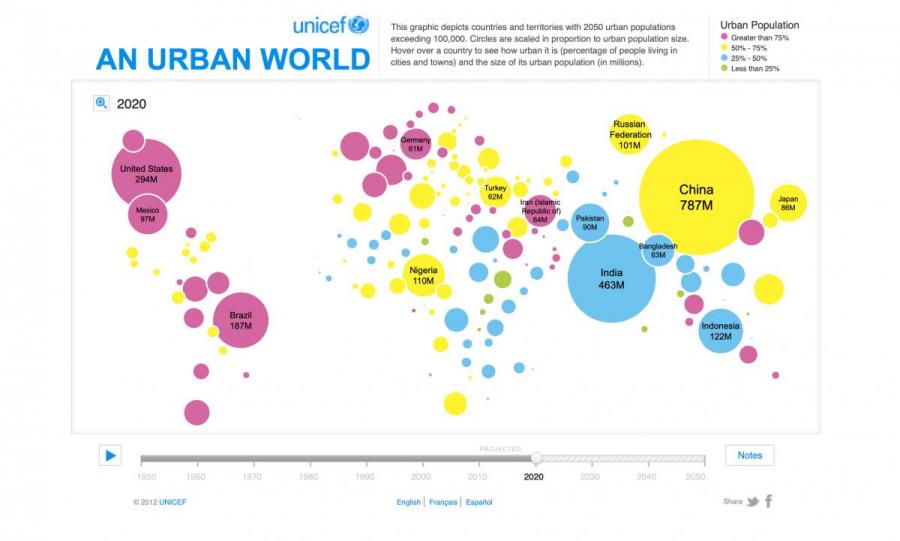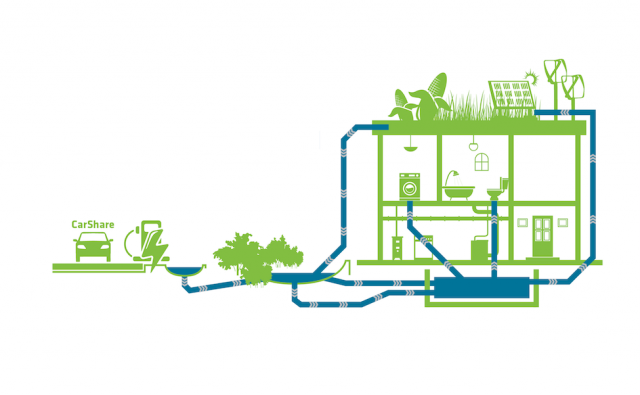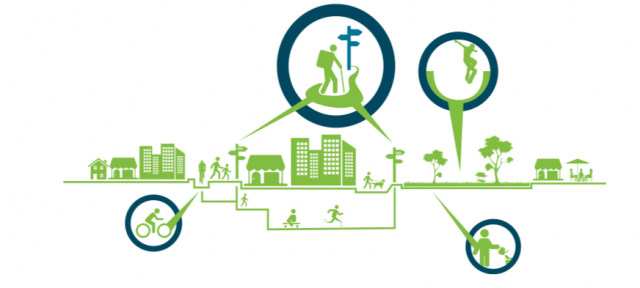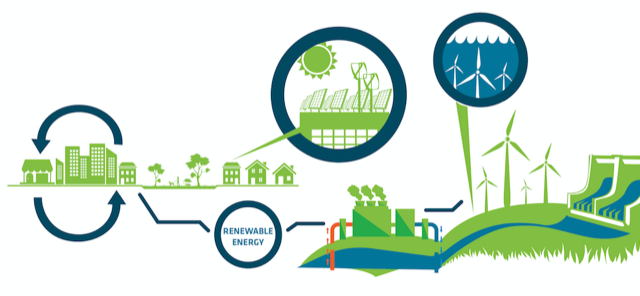2021.07.30--Falmouth Focus, Volume 3, Issue 18--Special Vision & Values Issue
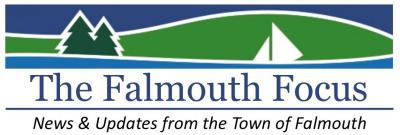
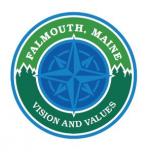
Please note: This newsletter will be sent to subscribers of both The Falmouth Focus newsletter and Town News & Announcements. Please excuse cross postings. To change your subscription settings, visit E-Alerts.
Welcome & Highlights |
Welcome to our second Vision & Values dedicated special issue of The Falmouth Focus. This new newsletter will run every other Friday (in between regular editions of The Falmouth Focus) and focus exclusively on Falmouth's Vision & Values project.
In this edition of the newsletter we are focusing on Future Macro Trends, from a global perspective, and how they may relate to Falmouth. In order to produce a successful Vision & Values project, we need to celebrate our past achievements and also look out to the future to anticipate trends that are currently occurring globally and those that are forecasted. The importance of future thinking is critical. You can learn more about the importance of future thinking in this article from our consultants at Future iQ.
In This Issue
Please note the hyper links above to sections within this document may not be supported by all browser platforms.
Some Key Emerging Trends |
Mass Urbanization
Today, over 55% of the world’s population live in urban areas. The United Nations estimates that 68% of the world population will live in urban areas by 2050. With the world population estimated to reach 9.8 billion by 2050 and 11.2 billion in 2100, how the future of urban living takes shape has become a critical issue for global development. You can see how this trend is accelerating by using the interactive urbanization map, which looks at populations by country living in cities of over 100,000 people. Find the map at: https://future-iq.com/foresight-research/future-of-urban-living/. In the US alone, this equates to over 50,000 people being added to city populations – each week! Patterns from the earlier/middle stages of the pandemic showed a global increase of individuals moving to rural areas. This provided a temporary property boom for rural properties on the market. However, as we come out of the pandemic, this initial trend doesn’t seem to be sustaining, and likely will have little long-term impact on the trend of mass urbanization.
Future Insights--Implications for Falmouth:
- While many people relate to Falmouth as a rural small-town community, it is clearly part of the growing metropolis of Portland, and is heavily influenced by Portland's trends, employment base, and economic drivers.
- Maine will continue to be shaped by the trend of mass urbanization, and Portland will continue to grow and remain the main population center of the state. This will continue to exert growth pressure on attractive surrounding areas such as Falmouth.
- Over the next decade, we will see significant societal shifts, as baby boomers cycle out of influence and the following generations exert more influence. These generations have different urban aspirations and values.
The Environment: Mitigating Climate Change and Closed Loop Systems
People and communities everywhere are dealing with the ever increasing and evident impact of climate change. As a result of this, and other shifting societal values, environmental issues are becoming more and more important to towns and cities. Governments, businesses, and households will need to implement practices to mitigate and adapt to climate change to reduce vulnerability to extreme impacts, and to increase the resilience of social, ecologic, and economic systems. Resource consumption and managing waste is also an increasingly critical issue. Approaches such as recycling, reusing, and composting are increasingly being integrated throughout towns and cities. There is emergent thinking of innovative ideas and concepts, such as "Cradle to Cradle" and closed loop waste cycle system, where there is a focus on net-zero waste and emissions.
Future Insights--Implications for Falmouth:
- Falmouth residents already have a keen appreciation of environmental issues, as demonstrated with the open space preserves. This creates a receptive context where new and bold ideas could be explored.
- With its significant coastal exposure, Falmouth will need to anticipate and understand issues such as potential rising sea-levels and higher intensity coastal storms.
- Overall consumption, emission, and waste levels from Falmouth should be considered, and the community could explore opportunities in net-zero emission and waste programs.
Future of Neighborhoods and Community
Neighborhoods are the pounding hearts of towns and cities. This is where people, live, work, go to school, and recreate. Vibrant neighborhoods that are walkable and include a mix of uses are becoming the preference of many people from young to old, and this trend has only been enhanced during the Covid-19 pandemic. The social fabric of life is created in neighborhoods, as people meet and interact. The Covid-19 pandemic has underscored the importance of public spaces, and has amplified the recognition of a real need for an intentional focus on nurturing neighborhoods and communities. Whether this is an elastic or inelastic trend is yet to be seen, however, as more people live and work from home, residents are likely to seek more local neighborhood experiences.
Future Insights--Implications for Falmouth:
- Falmouth has a relatively large commuting population, with people traveling in and out for work each day. If there is a significant shift to more work from home options, either part- or full-time, this might accelerate the need for neighborhood experience building.
- It is clear there is interest in some focal point in the community, where people from neighborhoods move out of the places where they live in order to go to the heart of a town to shop, dine, and enjoy the wider aspects that a town has to offer.
- The community survey work has highlighted that Falmouth residents have long expressed interest in a Main Street or Downtown location and feel. This has been identified in previous Comprehensive Planning work, and infrastructure investments have been made to begin this process, but it has yet to gather real traction. The time might be right to revisit and accelerate this strategy.
The Future of Work
The pandemic accelerated the future trend of working from home by demanding that everyone who could, should work from home. This was a trend that was predicted from as far back as 2015 and possibly earlier. People came to enjoy the flexibility and ease of not having the usual commute into work. Research has shown that productivity was often enhanced as a result. As we move out of the Covid-19 pandemic, we are all now used to new ways to connect and work with our co-workers and clients via Zoom and other platforms. People are currently moving back to working in offices and this will mean another mental and physical shift for individuals who became used to the flexibility of working from home.
Future Insights--Implications for Falmouth:
- It appears highly likely that there is an emerging shift to more flexible working options, with a range of home, office, and hybrid models. This might make Falmouth even more attractive to more affluent digitally mobile professionals. This may accelerate growth pressures and attract new and diverse people to the community.
- If work becomes more decentralized, flexible commercial spaces may have some appeal, and Falmouth may offer a location for such non-residential opportunities.
- Changing work patterns may bring significant benefits, such as reducing commuter traffic, offering more time in the community, and creating stronger community bonds.
Future of Housing
As society begins to urbanize more, and people become more sensitive to environmental and social equity issues, new thinking emerges about the future of housing. This is also influenced by the longer term trend in longevity and family household size. This impacts issues such as density, resource consumption, affordability and shared spaces. In the future, housing may be more integrated into mixed use neighborhoods, which will better meet the needs of smaller households with fewer children, and an aging population. Mixed use neighborhoods are becoming more popular than traditional suburban neighborhoods, as they offer a better match with resident needs, taking into account current and expected future housing trends. In many cases, more people are preferring smaller houses, which are more affordable, and have lower costs for maintenance, energy, and water.
Future Insights--Implications for Falmouth:
- Many people move to Falmouth due to its exceptional school system. The longer-term viability of the school will rely on having enough enrollments, which is impacted by the number of school aged families in the community. This number is in part driven by housing types, affordability, and availability.
- As urban population density increases, and citizens are using their neighborhoods more intensely, there may be a transformation of streets. This might mean more spaces shared by automobiles, or even becoming car free, and there may be other initiatives that improve safety on the streets.
- In the future, our experience of "home" may extend further from our own house, and reach into the surrounding neighborhood and public spaces.
Future of Education
Falmouth is known for its excellent school system, and it is a key part of the community value proposition. However, in the future, learning may become more individualized and may take place in multiple locations and at any time, in school, home, online, and at other institutions (e.g. museums, galleries, civic buildings). Schools may offer curricula that stimulate exploration and finding new opportunities. The pandemic required a new form of learning via virtual schooling. While this is not sustainable in the short term, it did show that children could learn from a virtual home setting and that this could be a future trend.
Future Insights--Implications for Falmouth:
- Many communities like Falmouth are seeing increased value in embracing "life-long learning." This is in part driven by the need to constantly learn and adapt, and by longer healthy life expectancy. Active retirees are proving to be more inquisitive and socially engaged. A key question is how Falmouth best builds this future learning environment.
- Social infrastructure associated with education and learning is likely to become more and more important. Amenities such as libraries, schools, and event centers may have broader uses within the community context.
Transformation in Transportation and Energy
The next decades will see a great shift in our relationship to transportation and energy.
Within the next decade, transportation will pivot to electric vehicles, and we will see more autonomous cars. This is the beginning of a shift away from a car centric life – and this has far-reaching impacts on urban planning, community life, and our lifestyles. As we look forward, it is possible that roadways will be transformed to have less focus on cars, and have a new mix of uses, including cycling paths. Shared transport models could become ubiquitous, cost effective, and provide an efficient service into the town/city, with connections to the larger metro area.
There is currently a shift in focus from traditional fossil fuel based energy sources to alternatives, including renewable sources (e.g. solar, wind, geothermal, tidal, cogeneration), as well as non-traditional fuels, such as hydrogen. As energy demand continues to rise, and there is an increased focus on low carbon energy to minimize potential climate change effects, towns and cities in the future will move towards managing energy in a hierarchy: conservation, local renewable energy production, and connection to the regional grid.
Future Insights--Implications for Falmouth:
- To be "future-ready," Falmouth needs to anticipate the scale of changes that will occur over the coming decades. The Vision & Values project is planning a decade plus into the future, and within this time-period, technology is accelerating big changes.
- Investments in public infrastructure are expensive and have long-term implications. Making sure these planning decisions and investments are "future-proof" will be critical.
Interesting Links |
The Next Industrial Revolution
Community Perspectives |
Join the Discussion
As in our last issue, we'd like to leave you with some perspectives from Falmouth community members on why this project--and YOUR voice--is so important to Falmouth's future. The Falmouth Vision & Values project is built on community participation. The initial phase of the project has demonstrated this by the excellent result in the community survey. The Community Connector group played a huge role in the success of the Community Survey #1. Perspectives from some of the Community Connectors are outlined below.
- Lee Hanchett, who lives in West Falmouth, is optimistic about what lies ahead. “The reason I got involved and what I’m hoping for, out of all of this, is to find out once and for all, what the community really wants,” he said. “That’s our holy grail, and I’m positive we’ll get there.”
- Andrea Ferrante (who grew up in the Flats and now lives on the west side) sees this process, and that of the comprehensive plan to follow, as an honest and sincere opportunity for residents, the council, and staff to finally accomplish something together with sustained value for the town. “As a resident and past member of governance, this level of collaboration has not seemed accessible until now,” she said. “With residents playing a central role, it’s what people have been waiting for, and I hope we can see it through in a meaningful and constructive way maintaining respect and care for one another,” she said. She also hopes that the community connector model becomes a precedent for future complex and potentially controversial community endeavors. Her message to residents with deep concerns about any aspect of Falmouth’s future: Get involved. “There are ways to course correct,” she said. “There’s real opportunity to make change when we’re specific about what we want and forgiving about past mistakes.”
- The Foreside’s Jennifer Packard said it’s most important to keep clarifying that connectors are not decision makers. “As connectors, it’s our job to engage those in the community that would not otherwise be involved, so that their voices can be heard,” she said. She is most interested in continuing to learn what people think and feel, comparing that to data, such as survey results, to find where things connect and where they show “a delta.” “It’s not just the connectors, but also the community that has a big responsibility on its shoulders. The unprecedented number of surveys that came back signals quite a bit of interest - or quite a bit of concern,” she said. She believes that learning what the community’s true wishes are is the first step. “Critical to reaching those goals will be well-structured language,” she said, referring to the writing of the visioning document and ultimately the comprehensive plan.
- John Crowley hopes that as more people become active, the visioning conversation broadens. “Falmouth and other small towns are at critical crossroads,” he said. “The nexus of the pandemic, the high cost of real estate, and migration patterns within the United States are causing an exodus from dense urban cores to edge cities and towns, such as ours.” He believes growth is a given and that the only permanent thing is change. “We can choose to ignore it, and it will happen, or we can embrace and help guide it,” he said.
- Jennifer Gregg, who lives on the Foreside, believes that communication and engagement are key to building community. “I’ve been keenly impressed so far by the council’s, the consultant’s, and connectors’ commitment to the tenets of transparency and grass-roots engagement as we seek to develop a plan for the future of our town. The videos of all our meetings that are on the public portal show that devotion to ensuring inclusiveness and clarity and to expanding community involvement,” she said. Like all the connectors, she looks forward to doing her best to keep raising awareness and encouraging more residents to participate.
More About Future iQ |

Future iQ has been contracted by the Town of Falmouth to conduct the Town of Falmouth Vision and Values process. You can learn more about the project lead David Beurle, CEO of Future iQ, who is leading the process with assistance from the Future iQ team, or Future iQ by visiting the website www.future-iq.com.
Town of Falmouth, 271 Falmouth Road, Falmouth, ME 04105 |


